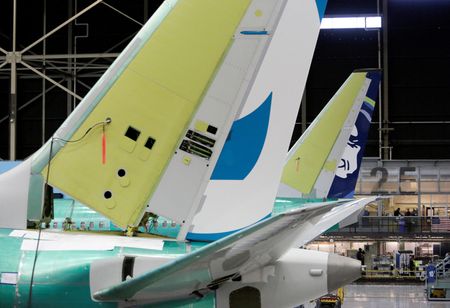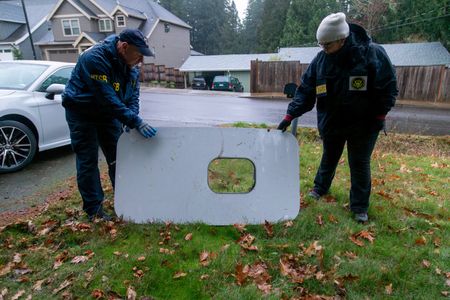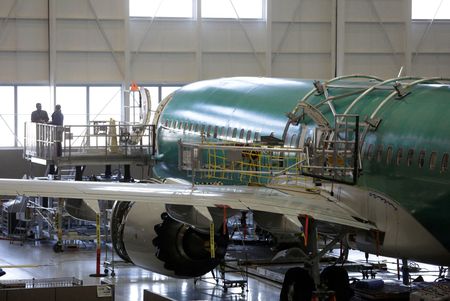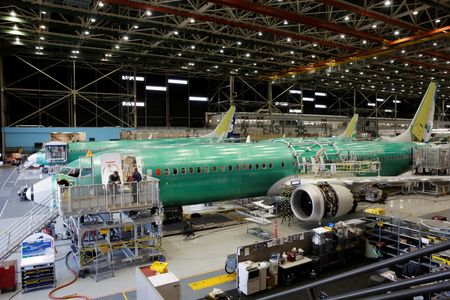By Valerie Insinna and David Shepardson
WASHINGTON (Reuters) -Boeing issued a bulletin to its suppliers late last week that laid out practices to ensure bolts are properly torqued after multiple airlines reported loose hardware during inspections of the grounded 737 MAX 9, according to a memo seen by Reuters.
The U.S. planemaker said that it is “imperative” that suppliers meet quality requirements, according to a Jan. 17 memo seen by Reuters, issued weeks after an accident when a panel ripped off of a 737 MAX 9 jet while in mid-air.
“Ensure that work instructions are mistake-proof and quality is continuously monitored – particularly torquing requirements,” it states.
The bulletin suggests suppliers document torque requirements on work instructions, require mechanics to record how much torque is applied when fastening components, and ensure tools are properly calibrated to ensure bolts are properly tightened.
Boeing declined to comment.
The updated guidance follows the Jan. 5 accident when an Alaska Airlines flight had to conduct an emergency landing after the panel, called a door plug, was blown off. The Federal Aviation Administration grounded 171 MAX 9 planes with the door panel configuration.
The National Transportation Safety Board has not yet determined whether the four bolts that attach the door plug to the fuselage were ever installed on the Alaska Airlines plane, but it is also too early to say missing or loose bolts were the root cause of the accident, NTSB head Jennifer Homendy told reporters Thursday. Spirit AeroSystems makes and installs the door plug.
Alaska Airlines CEO Ben Minicucci said in an NBC News interview that aired Tuesday that the airline found “some loose bolts on many” MAX 9s during inspections.
“My demand on Boeing is, what are they going to do to improve their quality programs in house?” Minicucci said.
United Airlines, which has also found loose parts on MAX 9s, on Monday reported a wider-than-expected loss in the quarter through March due to the grounding of the MAX 9.
Boeing has not changed its 737 supplier master schedule in the wake of the accident, the company said in a separate Jan. 22 email to suppliers seen by Reuters. The schedule, which lays out the expectation for when suppliers should be at a given production rate, calls for a production rate 42 of its 737s per month starting in February 2024.
Boeing’s actual production rate can differ from the master schedule for various reasons. The company is expected to update investors on its production plans when it reports results on Jan. 31, amid speculation from Wall Street that the need for greater checks would slow down the ramp up.
Suppliers should “continue to perform to your established requirements from Boeing,” the memo said. Boeing continues to work with the FAA to unground the aircraft and is “taking immediate actions to strengthen quality across the 737 production system.”
FAA Administrator Mike Whitaker told Reuters on Jan. 12 it was “pretty clear” the Alaska Airlines 737 MAX 9 cabin blowout was a manufacturing issue, not a design problem.
Whitaker noted MAX 9 issues that the MAX 9 has about 500,000 parts – and it is critical to ensure all bolts are properly tightened. “We’re certainly not looking at every part, but so you have to have a quality control system that does that … and (is) robust enough to see if something is not properly assembled.”
(Reporting by Valerie Insinna and David ShepardsonEditing by Nick Zieminski and Lisa Shumaker)




